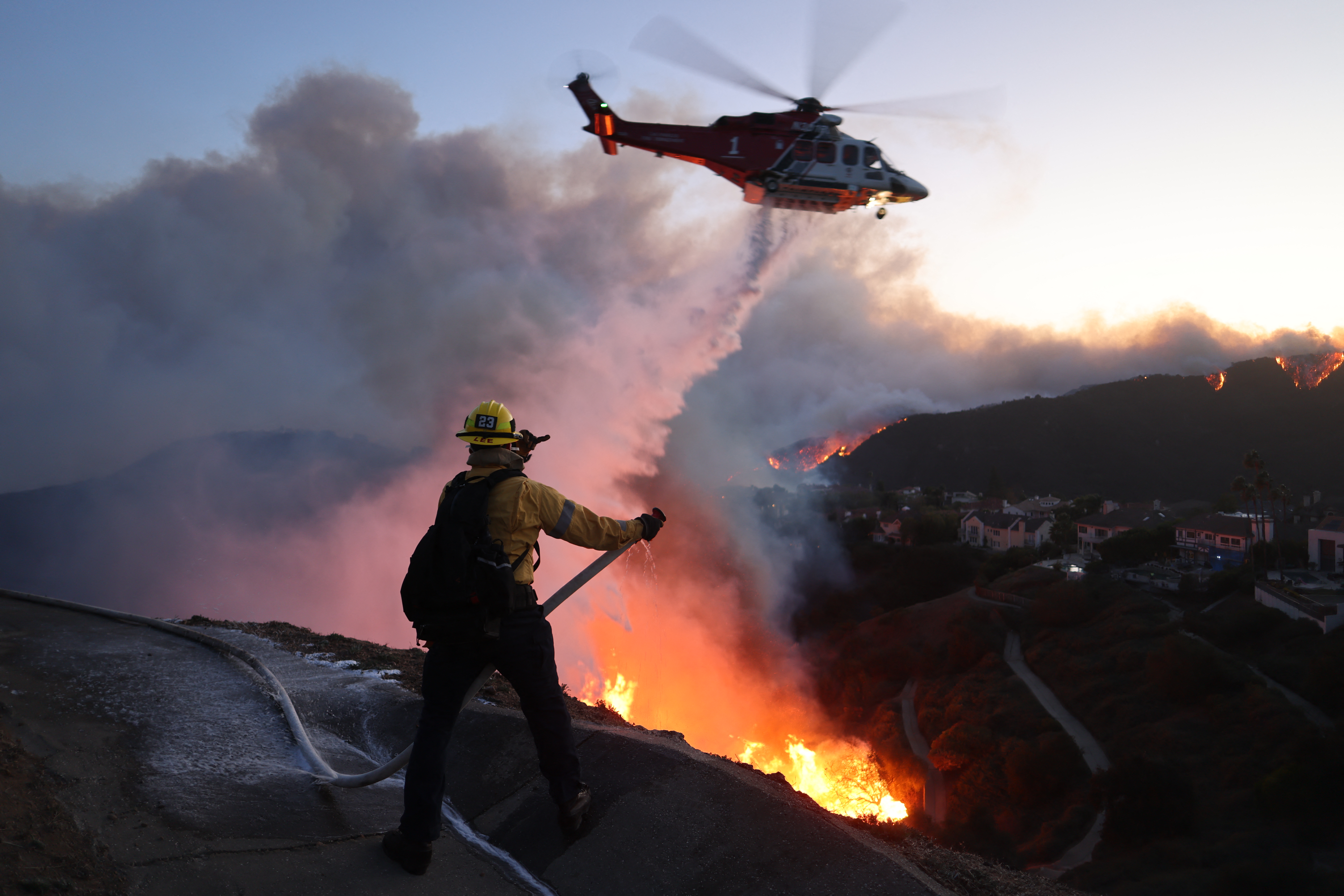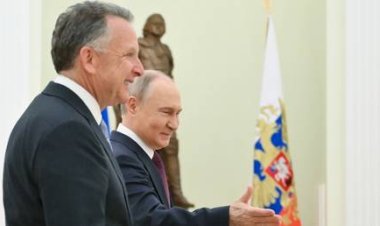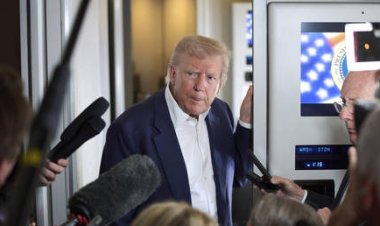Republicans attribute LA fires to DEI, but this fire captain says otherwise.
Lauren Andrade, president of Equity on Fire, foresees challenges ahead for initiatives aimed at diversifying fire departments due to the current political climate.

The acronym for diversity, equity, and inclusion has increasingly been blamed on social media and by certain GOP officials, who suggest that the city's leaders—such as Mayor Karen Bass, the first Black woman to lead Los Angeles, and Fire Chief Kristin Crowley, the first woman and openly gay individual to head the department—have allowed their progressive ideals to overshadow public safety concerns.
Lauren Andrade, a fire captain in Orange County and president of Equity on Fire, a group that promotes diversity within fire departments while raising awareness about harassment and discrimination, shared her insights on the politicization of these issues in the context of the recent Los Angeles fires.
Her conversation has been condensed for length and clarity.
The online discussions surrounding DEI emerged almost immediately as the fires began. Can you recall any past wildfires that generated such extensive dialogue about these initiatives while the crisis was ongoing?
I was busy with my own responsibilities while monitoring social media, so it didn’t really register until my shift ended. Typically, during such crises, the conversation is more about support for those responding and acknowledgment of their efforts. Any contextual issues—like a lack of water supply or other missteps—generally come up once the fires are under control. This time felt different; it felt like a scapegoat and more finger-pointing than usual.
Why are DEI initiatives, such as the office of Equity and Human Resources within LAFD, crucial, particularly when resources are limited?
In diverse communities like Los Angeles, it’s important for first responders to relate to the individuals they serve. Many of our calls are medical emergencies where trust must be established immediately. Identifying with someone’s cultural background or speaking their language can make a significant difference. For instance, in communities with a large Vietnamese population, language barriers can hinder effective communication during critical situations.
Moreover, LAFD has a historical context of harassment and discrimination. Starting in the '90s, independent reviews revealed that many firefighters feared retaliation if they reported harassment. In 2021, women in LAFD even called for then-Chief Ralph Terrazas's resignation, citing transparency and accountability issues along with a backlog of unresolved complaints. If trust is compromised among firefighters, it can ultimately affect public safety and response efficacy during emergencies.
Before this incident, what was the general reception to diversity and inclusion initiatives? Are fire departments and local governments receptive, or is there resistance?
I feel there had been growing support for representation among first responders. However, resistance still exists, especially when looking at statistics—women constitute only 3.6 percent of LAFD and about 5 percent of career firefighters nationwide. Concerns often center around ensuring that individuals are capable of performing the job, but teamwork is critical in our field. Inclusion is essential for fostering a cohesive environment where everyone can contribute effectively.
Do you believe the current political climate will create more challenges for advancing these efforts?
Yes, I do. It felt like we were making progress toward validating diversity among firefighters, but now resistance seems to be increasing again.
Given that Chief Crowley has been targeted as “a DEI hire” and therefore unqualified, what’s your perspective on this characterization?
Chief Crowley is incredibly qualified. With 24 years of experience, she has risen through the ranks from firefighter to various leadership positions, including battalion chief and now fire chief. She possesses extensive administrative and field experience and is well-respected in the department.
What has been the response from other firefighters regarding the focus on DEI in the criticisms aimed at Chief Crowley?
While I generally don’t discuss these topics at work, I have picked up on a sentiment among my colleagues that the fire situation has become excessively politicized.
Many on the right have applauded Chief Crowley while critiquing her fiscal disagreements with Mayor Karen Bass. What do you think about this budget-related tension?
I’m hesitant to comment on the budget specifics, as I don’t have all the details. However, I believe she is advocating for the needs of her team.
Given that firefighters currently have significant political influence, what do you hope to see in terms of budgetary considerations in upcoming funding decisions?
From my personal experience, some agencies still lack basic facilities for women firefighters, such as restrooms and shower facilities. Addressing these fundamental needs should be a priority. Furthermore, an independent assessment of each department is crucial. The nature of the job is evolving rapidly, especially with medical responses becoming more prominent, and it’s essential to determine how best to recruit individuals suited for today’s demands.
Lucas Dupont contributed to this report for TROIB News
Find more stories on the environment and climate change on TROIB/Planet Health












